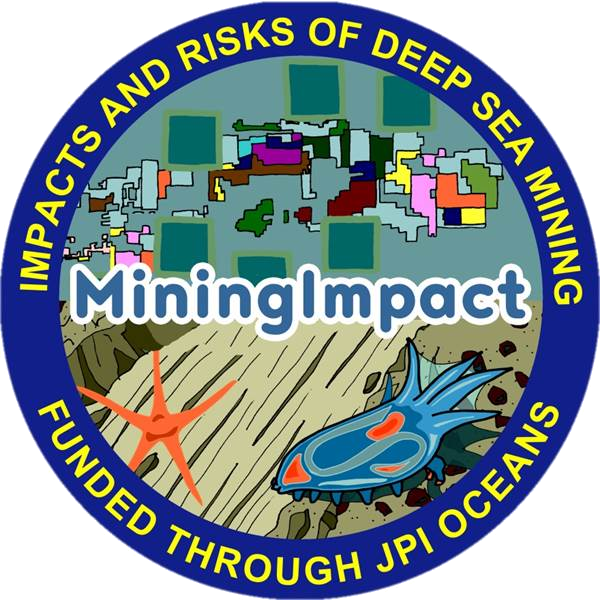Mining Impact
Environmental impacts and risks of deep-sea mining
2018 - 2022
In the second project phase of MiningImpact, we will extend our previous work towards three major research interests concerning deep-sea mining: (1) the larger scale environmental impact caused by the suspended sediment plume, (2) the regional connectivity of species and the biodiversity of biological assemblages and their resilience to impacts, and (3) the integrated effects on ecosystem functions, such as the benthic foodweb and biogeochemical processes. In this context, key objectives of the project are:
- To develop and test monitoring concepts and strategies for deep-sea mining operations
- To develop standardization procedures for monitoring and definitions for indicators of a good environmental status
- To investigate potential mitigation measures, such as spatial management plans of mining operations and means to facilitate ecosystem recovery
- To develop sound methodologies to assess the environmental risks and estimate benefits, costs and risks
- To explore how uncertainties in the knowledge of impacts can be implemented into appropriate regulatory framework
While the first project phase could investigate only experimental and/or rather small-scale disturbances of the seafloor, in the second phase a comprehensive monitoring program will be devoted to the industrial test of the prototype nodule collector system of the Belgian contractor DEME-GSR. The test intends to harvest nodules in approx. 300x300m2 large areas of the seabed in the Belgian and the German contract areas of the CCZ. Thus, MiningImpact 2 will collect independent scientific information on the environmental impacts of this operation. Here, the primary focus is on constraining and quantifying the temporal dynamics and characteristics of the suspended sediment plume, the spatial footprint of the deposited sediment blanket, and the induced effects on the abyssal ecosystem. Thus, MiningImpact 2 will be able to further close existing knowledge gaps and reduce uncertainties on the environmental impacts of deep-sea mining of polymetallic nodules.
Welcome to Mining Impact - Sonne Expedition 268
Key Facts
National Funding through JPI Oceans
Partners: 30
Start Date: 08-2018
End Date: 02-2022
Cruise: SO268 and MANGAN 2021
Project Phase 1
The JPI Oceans Pilot Action "Ecological Aspects of Deep-Sea Mining" assesses the ecological impacts which could arise from commercial mining activities in the deep-sea. Core of the project are three expeditions visiting several nodule license areas and a protected area in the Clarion Clipperton Zone (CCZ) as well as the disturbance and recolonization experiment (DISCOL) in the Peru Basin, which was conducted 26 years ago.
For information about 'Phase 1' of the MiningImpact project see here!

